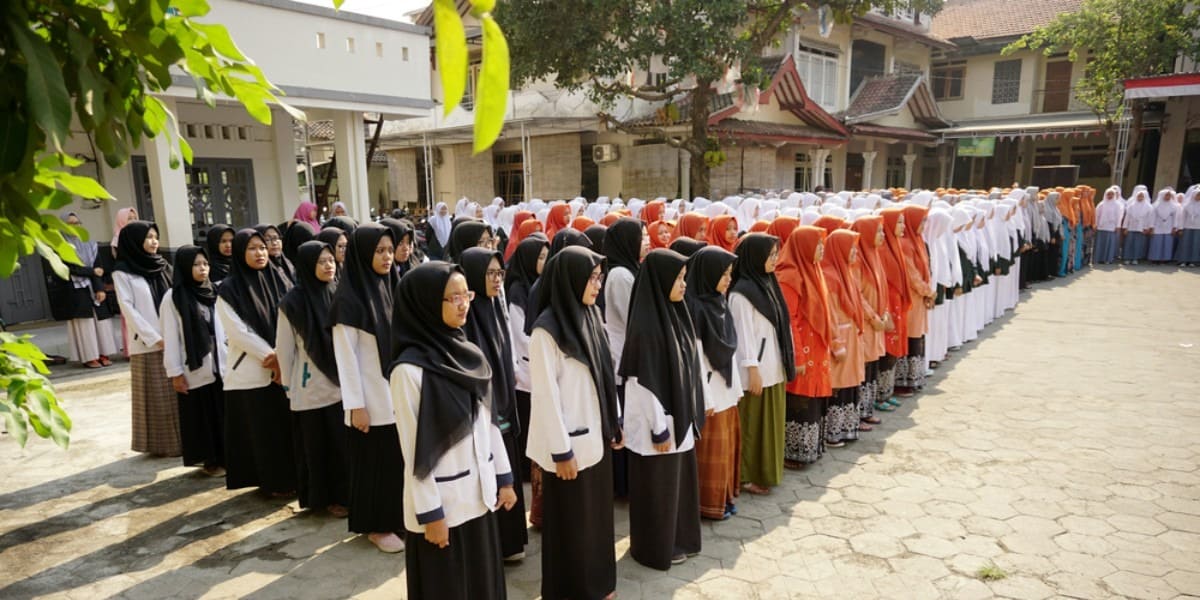Indonesia’s government partners with BRI Syariah to build Islamic economy ecosystem around religious schools
JAKARTA – Indonesia’s government will work with state-owned bank BRI Syariah to build a Shariah-compliant finance and economy ecosystem in 170 Islamic boarding schools, an official told Salaam Gateway.
The programme will run up to 2024 and involve the areas around Cirebon, Surakarta, Bogor, Manado, Makasar and Lampung, said Iskandar Simorangkir, Deputy for Macro and Financial Coordination at the Coordinating Ministry for Economic Affairs.
The initiative with the bank is part of a national long-term development programme involving Islamic finance and economy officials in the office of Vice President Ma’ruf Amin, and staff at Bank Indonesia (BI), the Financial Services Authority (OJK), the National Committee for Islamic Finance and Economy (KNEKS), Halal Product Guarantee Agency (BPJPH), and the National Amil Zakat Agency (BAZNAS).
This year, the government aims to establish the programme in 500 Islamic boarding schools, or pesantrens as they are called locally. The aim is to gradually increase this number to 1,000 pesantrens in 2021, 1,500 in 2022, 2,000 in 2023, and 3,300 in 2024.
According to the Ministry of Religious Affairs data, there are 28,194 Islamic boarding schools with a total student population of around 18 million. An estimated 5 million are full-time boarders.
The project has been run at two schools, Kyai Haji Aqiel Siradj (KHAS) Kempek Cirebon and Al-Qur'aniyy Az-Zayadiyy Surakarta, since December 17, said Iskandar.
It consists of three services. The Islamic financial services consist of Shariah Bank Agents, Shariah Pawnshop Agents, Shariah Fintech Agents, Zakat Collecting Units (UPZ), and Halal Centers to serve the needs of the Islamic boarding schools.
Secondly, an integrated Islamic payment system will be set up to support the payment of tuition fees for students, and payrolls for teacher salaries and boarding school administrators. It will also facilitate digital payment systems using QR technology at kiosks within the boarding schools.
“The implementation of digital payment using QR technology is one example of the adaptation of new habits in the COVID-19 pandemic and in line with health protocols. Parents of students can transfer their tuition fees now instead of coming physically to schools," said Iskandar.
Third, funding from Micro Wakaf Bank (BWM) and KUR Syariah will be pumped in to build kiosks or shops along the lines of a cooperative business at Islamic boarding schools.
Iskandar added that the government is keen to improve Islamic financial inclusion. Data from the Financial Services Authority (OJK) survey in 2019 showed that the level of Islamic financial inclusion in Indonesia in the last three years dropped from 11.6% to 9% as overall financial inclusion improved from 67.8% to 76.1% during the same period.
The government considers the level of Islamic finance inclusion to be sub-optimal, especially as 87.18% of the country’s 265 million population are Muslims. It hopes the development of an Islamic economy ecosystem for the schools will boost Islamic financial inclusion. As high as 44.2%, or 12,469 of the religious boarding schools have economic potential from agribusiness, livestock, food and beverages, plantations, printing, textiles, and retail.
"Empowering the economy of Islamic boarding schools as a new flow of the economy is one of the efforts to restore the economy during the COVID-19 pandemic, while still observing the prevailing health protocols,” said Iskandar.
“It can also boost the Islamic finance industry, which has been stuck at around 6-7% of the finance industry’s total market share. Data from OJK showed that last December it only stood at 5.95% and slightly improved to 6.1% in April,” he said.
“We could also improve national micro loan (KUR) disbursements through boosting the economy surrounding Islamic boarding schools. As you know, this year the disbursement of KUR is affected by the pandemic. In the first half of the year, only 76.2 trillion rupiah ($5.2 billion) were disbursed, which is around 40.1% of the 190 trillion rupiah target this year,” he added.
BRI Syariah’s Commercial Business Director, Kokoh Alun Akbar, told Salaam Gateway the bank has so far been partnering with 170 Islamic boarding schools to serve 22,416 savings accounts, 345 hajj savings accounts, 2,167 payroll accounts, 30,209 student cards for tuition fee payments, and 147 accounts for SME loans of 11.1 billion rupiah.
“Last December, we started to disburse loans to several SMEs around Kempek Islamic boarding schools, at 10 million rupiah to 50 million rupiah per SME. During the first half, we disbursed 5.45 trillion rupiah in loans to 143,995 SMEs across Indonesia,” said the BRI Syariah official.
“And there will be an additional 1.5 trillion rupiah loan allocation from the government for the second half of the year,” he added.
(Reporting by Yosi Winosa; Editing by Emmy Abdul Alim emmy.abdulalim@salaamgateway.com)
© SalaamGateway.com 2020 All Rights Reserved
